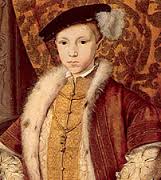Elizabeth Fry
 The infamous picture of that woman on the English £5 note is Elizabeth Fry, a Quaker from Norwich. She is famous for being a Victorian philanthropist because she changed the system of prison life in England.
The infamous picture of that woman on the English £5 note is Elizabeth Fry, a Quaker from Norwich. She is famous for being a Victorian philanthropist because she changed the system of prison life in England.
Elizabeth was born on 21st April 1780 in Norwich to John Gurney, banker and owner of a factory, and Catherine Bell. As a child, Elizabeth was brought up with her mother's faith- a denomination of Christianity called Quaker. Part of a large family, she lived in Earlham Hall, built in 1642, with her ten siblings: Joseph, Samuel, Louisa, Daniel, Priscilla, Rachel, John, Hannah, Catherine and Richenda and their parents. At the age of twelve, Elizabeth's beloved mother died and so she had to assist in the bringing up of her brothers and sisters. As a youth, she embraced bright colours and wore French style hats in support of the French Revolution!
When Elizabeth was twenty, in 1800, she married a fellow Quaker- Joseph Fry. Together they had eleven children and miraculously for those days only one died. Her children were called- Katherine (Kitty), Rachel, John, William, Richenda, Joseph, Elizabeth (Betsy- died aged five in 1816), Hannah, Louisa, Daniel and Samuel. During her lifetime Elizabeth wrote three books about her and her charity work and she met the young Queen Victoria at the beginning of her reign. Elizabeth died on 12th October 1845 in Ramsgate, Kent and is buried at a Quaker's burial ground in Barking Essex.
Prompted by another Quaker, Elizabeth visited Newgate Prison 1813 and was appalled at the conditions that the prisoners were kept in. Small, innocent children were being locked up with their parents who had committed petty crimes in desperation. At that point, Elizabeth went home, resolving to do something about the situation. Elizabeth and a group of friends started sewing clothes for the children which she took to the prison along with some loaves of bread. As well as this, Elizabeth started teaching the children and then the mothers so that they would have some education when they left prison. Elizabeth Fry also set up soup kitchens, hostels, night houses and many other charitable buildings and foundations including a nursing college.
When Elizabeth was twenty, in 1800, she married a fellow Quaker- Joseph Fry. Together they had eleven children and miraculously for those days only one died. Her children were called- Katherine (Kitty), Rachel, John, William, Richenda, Joseph, Elizabeth (Betsy- died aged five in 1816), Hannah, Louisa, Daniel and Samuel. During her lifetime Elizabeth wrote three books about her and her charity work and she met the young Queen Victoria at the beginning of her reign. Elizabeth died on 12th October 1845 in Ramsgate, Kent and is buried at a Quaker's burial ground in Barking Essex.
Prompted by another Quaker, Elizabeth visited Newgate Prison 1813 and was appalled at the conditions that the prisoners were kept in. Small, innocent children were being locked up with their parents who had committed petty crimes in desperation. At that point, Elizabeth went home, resolving to do something about the situation. Elizabeth and a group of friends started sewing clothes for the children which she took to the prison along with some loaves of bread. As well as this, Elizabeth started teaching the children and then the mothers so that they would have some education when they left prison. Elizabeth Fry also set up soup kitchens, hostels, night houses and many other charitable buildings and foundations including a nursing college.



Comments
Post a Comment